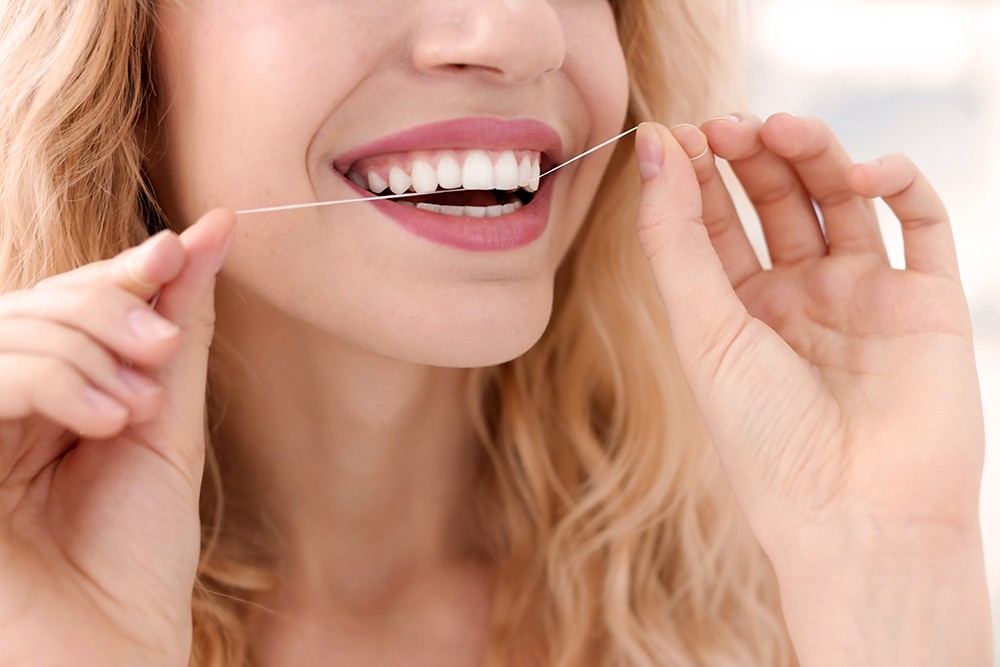Blog
Dental hygiene tips for healthy teeth & gums

How Flossing Is Important for Your Oral Health
As prescribed by the ADA, it is important to brush your teeth for 2 minutes, twice a day. Along with brushing, flossing also equally contributes to your oral health and well-being. Therefore, it is recommended to brush and floss collectively on a daily basis. However, if you had to pick one, flossing is more important if done correctly.
Flossing allows you to remove plaque from areas that are hard to reach and where the most destructive microbes live. If plaque is not removed from these areas, it can lead to gum disease like gingivitis. To reap the advantages of flossing, it is first important to understand the correct way to floss.
Proper flossing involves wrapping the floss in a ‘c-shape,’ and covering as much surface area of the tooth as possible. It is recommended to move the floss up and down along the surface and under the gum tissue. This way flossing cleans plaque from both the outer and inner surfaces of your teeth and also beneath the gum tissue.
Flossing and Oral Health
There are a large number of bacteria naturally occurring in our mouth. These bacteria create toxic products which is linked to tooth decay and gum disease. Flossing and brushing altogether prevents the development of tartar by removing plaque while it is still soft.
Bacteria in the mouth tend to break them down into sulfur compounds responsible for bad breath. Flossing allows you to go under the gum tissue to reach the areas where bacteria colonizes. So, when it comes to eliminating bad breath, flossing acts as a viable solution.
Patients having poorly controlled sugar level are susceptible to oral infections. This happens because glucose present in our saliva induces the growth of harmful bacteria in our mouth. People having Type 2 diabetes are more likely to develop gingivitis. Therefore, it is required to floss regularly and neutralize the effect of diabetes.
Flossing Protects Your Gums Too
Flossing plays a vital role in maintaining great oral hygiene. The place where the gums and teeth meet are where flossing plays its major role. Plaque in these areas get harder and accrete over time to form tartar. However, floss gets into the space between teeth and gums to remove much of the food and plaque that a toothbrush can’t move.
When you first start flossing, your gums might bleed a little. Do not panic. This is normal when you just start flossing. After a few weeks, bleeding will stop. Additionally, getting regular checkups with professional dental cleaning and fluoride treatment will help you take care of your smile.
Book Appointment to find out which treatment might be best for you.
